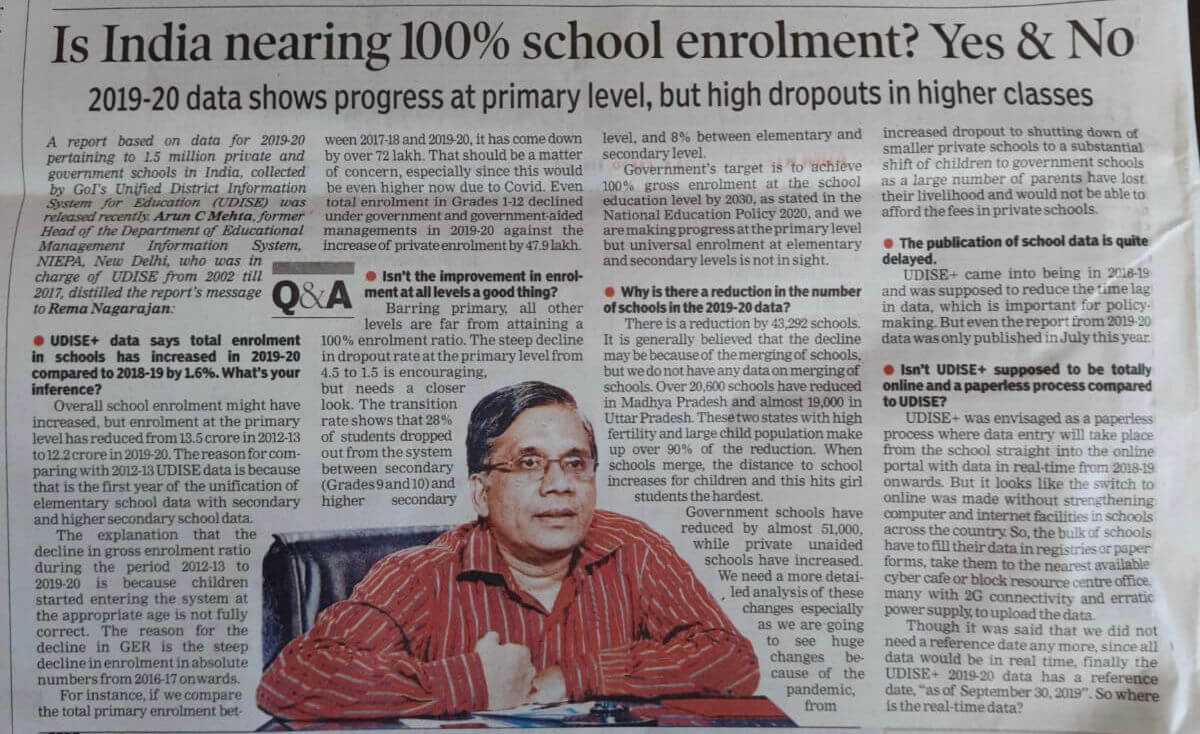Indicators of Educational Development
Core EFA 18-Indicators
The EFA 2000 Assessment is a major global endeavor that will enable the participating countries (I) to construct a comprehensive picture of their progress towards their own Education for All goals since the 1990 Jomtien conference, (ii) to identify priorities and promising strategies for overcoming obstacles and accelerating progress, and (iii) to revise their national plans of action accordingly. The EFA Forum’s Technical Advisory Group, comprising UNDP,UNESCO, UNFPA, UNICEF and the World Bank has prepared Technical Guidelines to assist the national technical sub-groups in their work.These guidelines propose a number of characteristics and phenomena, as well as a set of 18 core indicators, that may be used to measure the main components of basic education. The indicators are grouped according to the six ‘target dimensions’ contained in the Framework for Action to meet Basic Learning needs which are agreed at the World Conference on Education for All (Jomtien, Thailand, March 1990). The group of indicators are Early childhood Care and Development, Primary Education, Learning Achievements and Outcomes and Adult Literacy. A number of Excel worksheets and templates have been developed to facilitate development of indicators through which all the 18 indicators can be constructed. In addition to basic indicators, like Gross and Net Enrolment Ratio, Literacy Rates, Pupil-Teacher Ratio etc. one can also generate indicators of internal efficiency of education system.
For more details, see
Education for All
The Year 2000 Assessment: Technical Guidelines
International Consultative Forum on Education for All
EFA Forum Secretariat
7, Place de Fontenoy
75352 Paris 07 SP, France
You can also request for a copy of the Guidelines and Excel Worksheets and Templates from the UNESCO Office located at Paris.
Visit UNESCO or mail at efa@unesco.org.





